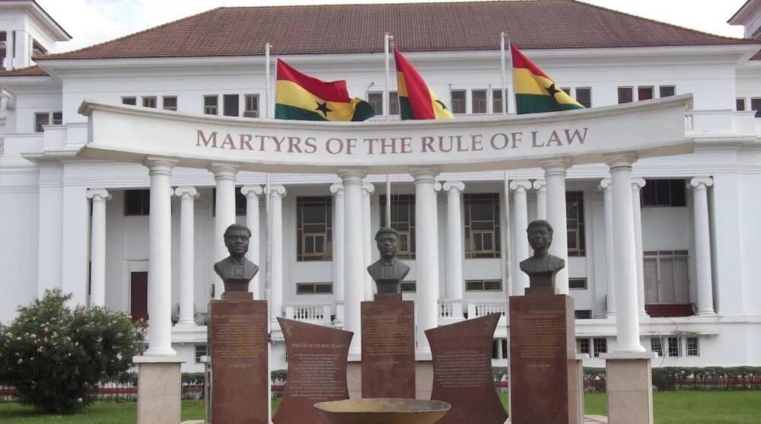The Supreme Court has provided a detailed explanation for its decision to uphold the suit brought by Majority Leader, Alexander Afenyo-Markin.
According to the apex court, a Member of Parliament (MP) is deemed to have vacated their seat if they change their political affiliation and continue to serve in Parliament under a new party identity.
This ruling supports the suit filed by the Majority Leader, clarifying that the relevant constitutional provisions apply only within the current term of Parliament.
The court specified that Articles 97(1)(g) and (h) of the Constitution do not extend to future parliamentary terms, such as when an MP runs for election under a different political party in subsequent elections.
The Supreme Court emphasised that an MP’s seat must be vacated if they switch parties while holding office within the same parliamentary term.
In other words, changing political affiliation during a parliamentary term while remaining in Parliament will lead to the loss of their seat.
The judgment also addressed the situation for independent MPs, making it clear that if an independent MP joins a political party while serving their current term, they must vacate their seat.
The ruling elaborated that the constitutional provisions should be viewed in the context of the existing term of Parliament.
They do not intend to regulate future candidacies or the electoral ambitions of MPs who may wish to contest under different political parties in the future.
“It follows from the above, therefore, that the only plausible conclusion which must necessarily flow from a holistic and contextual reading of Article 97(1)(g) and (h) is that an MP’s seat shall be vacated upon departure from the cohort of his elected party in Parliament to join another party in Parliament while seeking to remain in that Parliament as a member of the new party,” the court stated.
Additionally, the ruling clarified that the constitutional articles in question are not concerned with future elections.
They strictly pertain to the current period in which an MP holds their seat and make no provisions for future electoral scenarios.
In conclusion, the Supreme Court’s decision firmly defines the circumstances under which an MP must vacate their seat, focusing exclusively on changes in political affiliation within the same parliamentary term.
Latest Stories
-
Seth Terkper to launch book on Ghana’s VAT journey and lessons for Africa
2 minutes -
The silence around Nana Pooley’s case: When justice sleeps, society suffers
3 minutes -
UTAG president challenges Chinese Ambassador over galamsey remarks
4 minutes -
The Escalating Israel-Iran War: A new threat to global trade
12 minutes -
Seven killed in Kyiv in new Russian aerial attack
17 minutes -
Hearts’ $70,000 transfer saga with New Edubiase is being resolved – Opare Addo
27 minutes -
Former Deputy Foreign Affairs Minister questions Mahama’s recall of 3 career diplomats
29 minutes -
Senior NPP figure in Ashanti region advocates grassroots experience as prerequisite for top party roles
41 minutes -
Hindsight: How Maxwell Konadu lost the Hearts coaching job to Didi Dramani
47 minutes -
Scars of Hooliganism: GFA should ‘stop talking so much and do more’ – Herbert Mensah
1 hour -
Mass dismissal: BoG’s decision should be respected – Vickie Bright
1 hour -
Bawumia dominates but NDC supporters back Ken Agyapong in NPP race – Survey
2 hours -
Open Letter to the President: Galamsey is dead; what we face now is environmental terrorism, crash it now
2 hours -
Inaki Williams defends brother Nico after fans erase image from mural amid Barcelona transfer rumours
2 hours -
Next Joy Business Economic Forum comes off on June 25, 2025
2 hours

